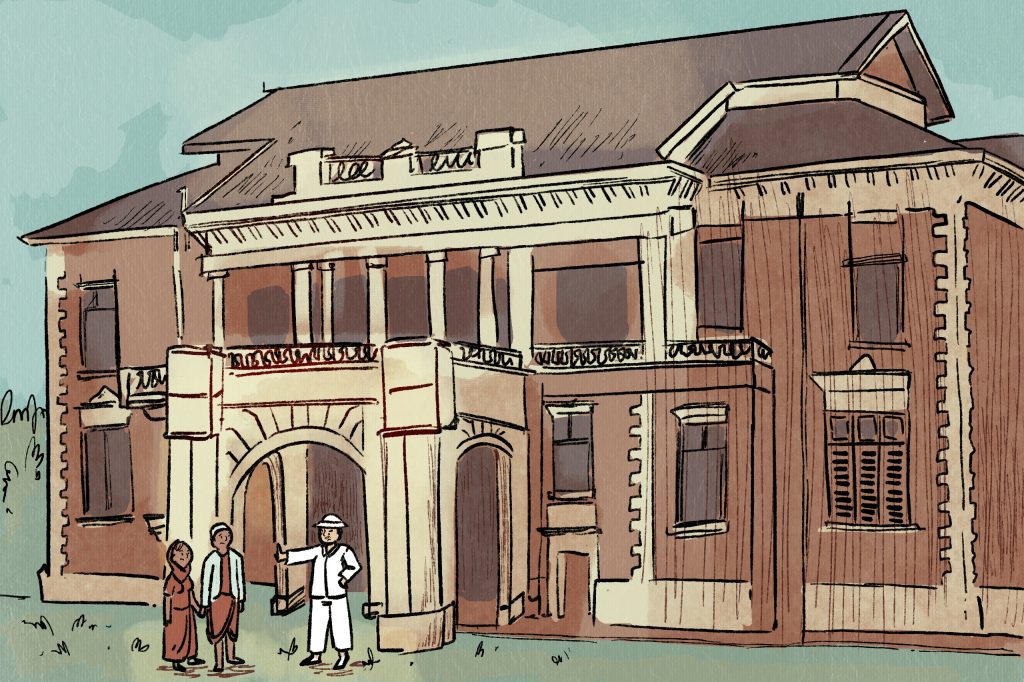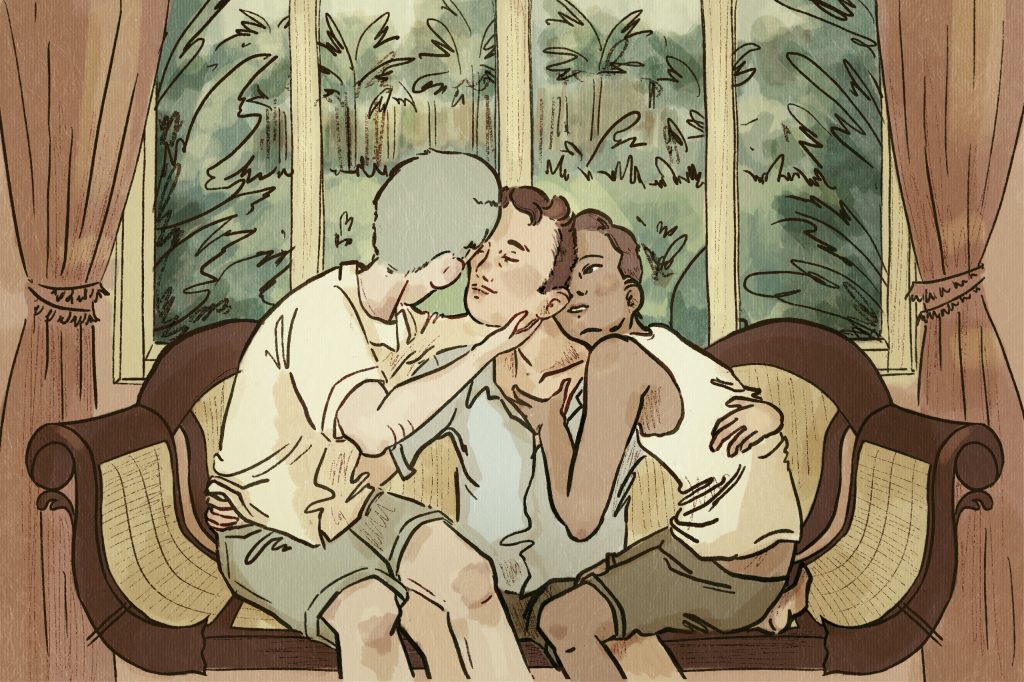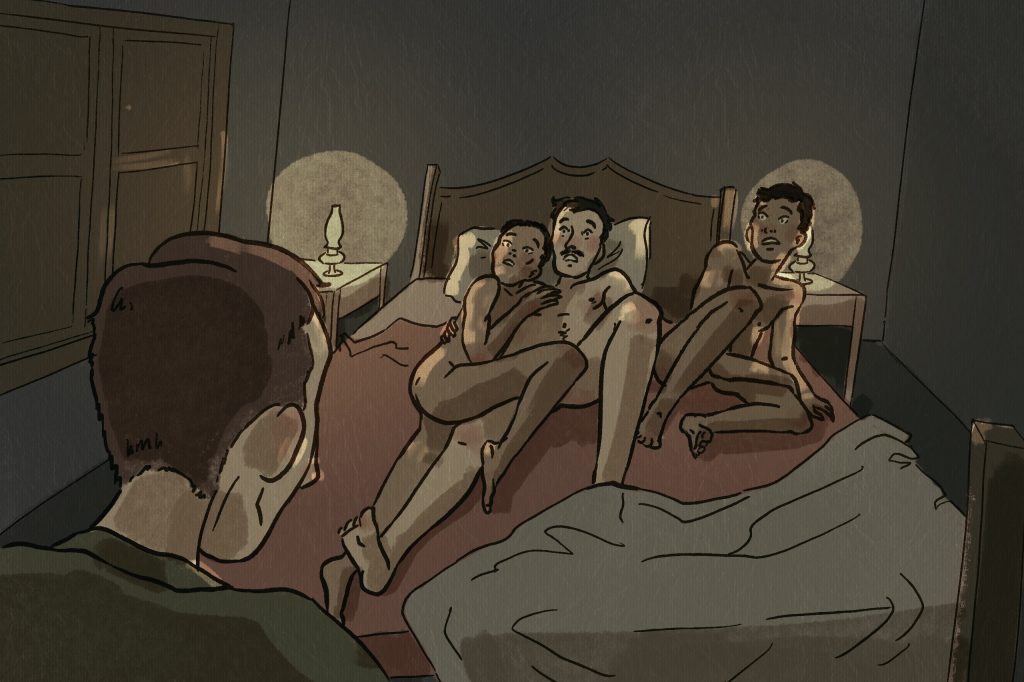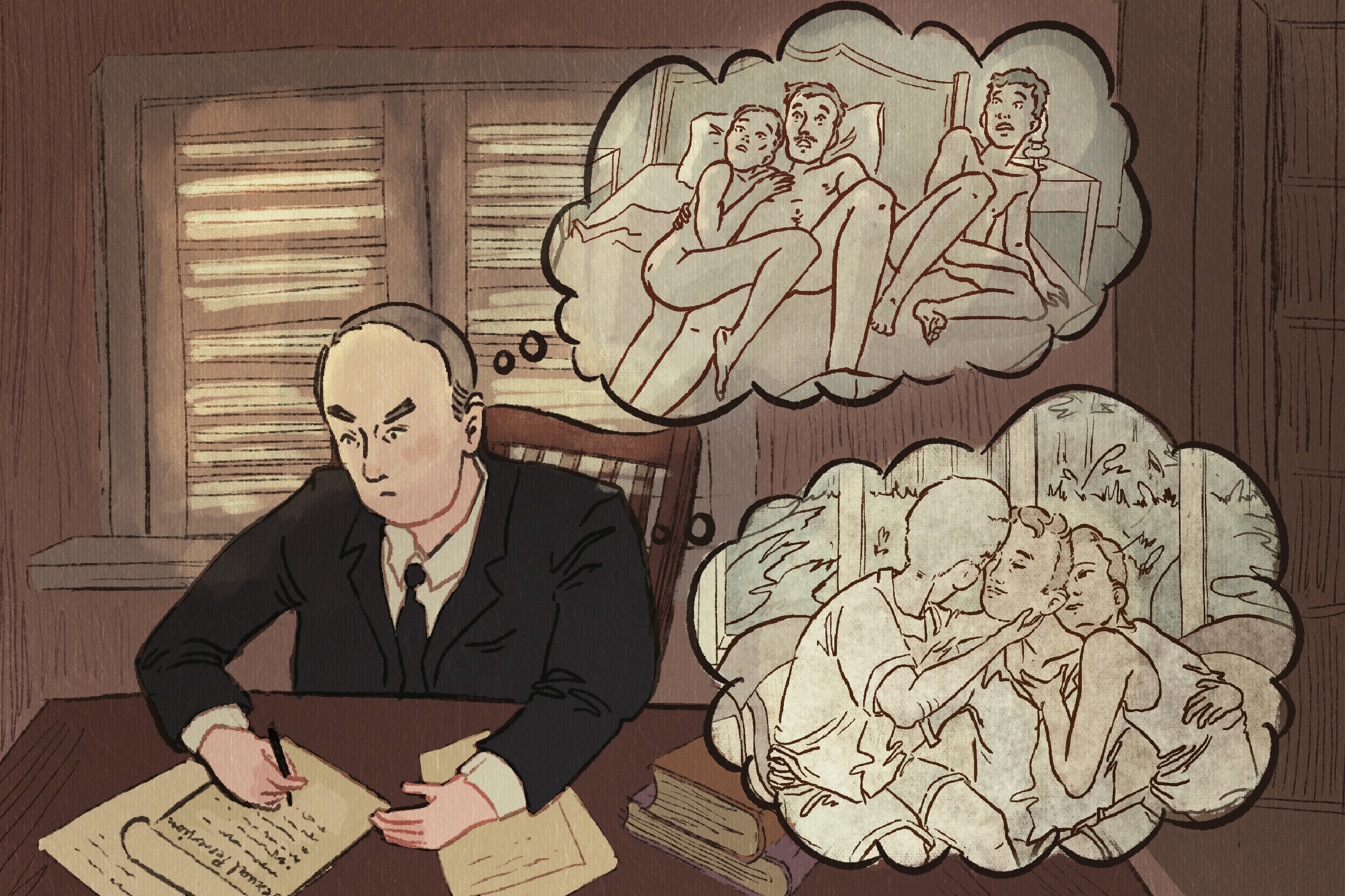All images: Ansh Sirohi
Prologue
Section 377A was introduced to Singapore’s penal code in the middle of 1938. It reads: “Any male person who, in public or private, commits, or abets the commission of, or procures or attempts to procure the commission by any male person of, any act of gross indecency with another male person.”
Simply put, 377A criminalises sex between two consenting male adults. It is generally believed that the law derives from the British government’s desire to ‘safeguard’ public morality by prohibiting homosexual activity in the Straits Settlements.
However, documents recently declassified by the British government reveal that this is not the case. 377A was, in fact, motivated by a scandal in which prominent white European men were discovered to have slept with Asian male prostitutes. This drove the Straits Settlement government into a panic because it saw the scandal—of the white man succumbing to the native boy—as a threat to its colonial rule.
Based on historical and archival research, this article retells the circumstances that led to the enactment of 377A in 1938.
Sir Thomas Shenton, Governor of the Straits Settlements, is in a wee bit of a pickle. All because of an innocent-looking book that his police force had seized from a Chinese male prostitute.[1]
He paces around his table several times without letting the book out of his sight. Then, sighing deeply, he picks it up, for what must have been the hundredth time that day. He does not like what he sees in the book.
ADVERTISEMENT
Names he recognises flit across his eyes. Prominent Europeans in his government; in the civil service; in colonial society.
Prominent white European men.
It is not so much the issue of homosexuality, or even prostitution, that makes Shenton so anxious to remove these men from his government.
It is the fact that these are European men who are consorting with Asian male prostitutes.
What of the hierarchy of races? How can the white man claim legitimacy and rule over his colonial subjects if he is sleeping with native boys and—possibly—being penetrated by them? What’s next—throwing open the doors of Tanglin Club to the natives?[2]
Shenton shudders.
It is a shudder that tells him a new law needs to be enacted—not to preserve public morality, per se—but to prevent European men from debasing themselves, and the colonial government, by sleeping with Asian male prostitutes.
Or, if not a new law, an amendment to an existing one: Section 377A.

Endemic sexual deviances
Shenton knows he has to be strategic for his proposed law to pass. Banning homosexual activity on moral grounds might backfire because morality, in the Asiatic world, has a different meaning to the natives compared to refined Europeans like himself.
He recalls how, before departing for Singapore, he was instructed to read a 1896 dispatch from the Straits Settlements Association in London. It described the predilection of local men for “unnatural vice”.[3]
Frowning at this memory, Shenton puzzles at how what is “unnatural” can vary so much in different parts of the world, at different periods of time, so as to appear arbitrary.
Perhaps it is because of the harsh local climate, or the uncivilised culture of the Asiatics, but homosexuality and other sexual deviances are endemic—almost natural and expected—in the Straits Settlements.[4]

As Shenton discovers, even prior to his arrival, Singapore had six flourishing male brothels, staffed by 12 male prostitutes.[5] Indeed, the acceptability of homosexuality in the colonies was the defence mounted by several Europeans when they were caught in the arms of native men.
ADVERTISEMENT
The first perpetrator who comes to Shenton’s mind is Mr. H. Gerhold—the Assistant Commissioner in the Federated States Police Force, no less!
Not only did Gerhold make it a habit to seek the company of young Malays, including members of the force, he also admitted in a Statement of Fact addressed to the Governor of the Federated Malay States, that he had “experimented” many times with several Asian men. Among them are a Javanese known as Jusari, and a frequent visitor to his bungalow named Hassan.
An offence that’s hard to prove
Protesting his innocence, Gerhold, in a letter dated 6th March 1938 and addressed to the High Commissioner of the Federated Malay States, writes that “in this country … this vice is peculiarly prevalent amongst both Europeans and Asiatics”.
Moreover, “it is not regarded with the same disapproval accorded to it in western countries” because “the Asiatic… regards this vice as no less natural than womanizing and conveying no greater stigma”.
Shenton is not convinced. Gerhold, after all, is a white European man, not an Asiatic. He ought to live by different cultural values than the natives. Perhaps, Shenton muses, a new law will remind him of where he comes from.
More troubling to Shenton is how these officials are so obstinate in denying guilt. Well, Shenton admits to himself, they are technically right. In the eyes of the law, they have committed no crime.
Sure, sodomy is already a penal code offence. But unless Shenton catches them in the act—penis in anus—it is near impossible to prove that something illegal had taken place.

“His penis was not erect”
Such is the case with Mr Reeves, a member of the Malayan Civil Service, whom the Executive Council Committee suspected had been frolicking with Asian male prostitutes. Upon hearing this, Shenton, of course, recommended removing Reeves from the Service.
Imagine if the general population were to find out that a white man had succumbed to the allure of a native! It would expose Europeans to blackmail and jeopardise the respect the natives have of the colonial government.
Unfortunately, the Secretary of State did not approve Shenton’s recommendation because no charge against Reeves could be proved.
Furthermore, the government could not remove Reeves on grounds of inefficiency—the only legitimate avenue left for dismissal —because Shenton, honest as he is, had to admit that Reeves is still performing his duties adequately, despite this major flaw in his character.
Worse is the situation with Mr. H Moses, a European Warder in the Straits Settlements prison. Shenton tries not to picture the scene—but fails because of how arresting the image is.

A Japanese Hotel in Prinsep Street. Moses, naked, sprawled on the middle of the bed. An Asian boy sitting on Moses’s stomach, his back to Moses’s face. Another lying by Moses, stroking his face. The police officers who caught Moses red-handed stand frozen at the door, mouth agape.
No act of “carnal intercourse against the order of nature”—as stated in Section 377—had happened here, Moses argued after his arrest.
They were just three men enjoying each other’s company, albeit sans clothing.
Moses’ defence? His penis was not erect.
Any male person who, in public or private, commits, or is a party to the commission of, or procures, or attempts to procure the commission by any male person of, any act of gross indecency with another male person, shall be guilty of a misdemeanour…
The original text of the Labouchere Amendment, passed in the UK in 1885
The Labouchere Amendment
These unsatisfactory scenarios made Shenton realise that new procedures have to be adopted when dealing with future cases of this nature.
Mulling over the matter of Moses, Shenton has an epiphany: he could simply borrow the wording of the Labouchere Amendment, a law criminalising homosexual activity, that was passed in England and Wales in 1885.
Instead of stipulating “carnal intercourse”, the Labouchere Amendment outlawed “any act of gross indecency” between two male persons.
The fact that Section 377A will be enacted a whole 53 years after the Labouchere Amendment is of no concern to Shenton.
Unlike the latter, which was indeed a barometer of public morality, Section 377A will be used more as a tool to rid the colonial government and society of European men who disgraced their own kind by consorting with native male prostitutes.
Therefore, Shenton assures himself, the gap between the enactment of the Labouchere Amendment and Section 377A in the Straits Settlements will not invite any accusations of the colonial government having lax public moral standards.
After all, the policing of homosexual activity between two men, as is clear to anyone in the government at this point of time, is not the reason for 377A’s existence.
Section 377A passes
Section 377A passes in June 1938 without fanfare, sealing the fate of many European men.
Shenton is not a heartless man, however. Or, to be more accurate, he is not heartless towards the image of the British colonial service, and the reputation of his race.
Thoughtful as he is, Shenton first muzzles the media so that not one detail of this scandal leaks out to the public.
Second, he decrees that any European found guilty under the new law—which, in any case, will not apply retroactively—be given the option of resigning and leaving Malaya.
Crucially, the option must be given before criminal proceedings are instituted, Shenton is careful to stress, in a memo entitled “The Malayan ‘sexual pervasion’ cases” that he writes after 377A had been enacted.
This is an important point. In some cases, the prosecution may be undesirable and not in the public interest.
Just think, for example, of the furore that will erupt in the colonies should the masses find out about the curious case of the bishop’s son, or of the two missionaries. Then Shenton realises that, no, he does not want to think about it.
Section 377A, then, is only a last resort. To ensure this point is hammered home, Shenton proposes that he should have the power to order an enquiry under Colonial Regulations in lieu of prosecution. In other words, no white man should be prosecuted under Section 377A without his explicit consent.
The respectability of the European race, and the legitimacy of its governance, are paramount. All other issues involved are simply collateral damage.
Any male person who, in public or private, commits, or abets the commission of, or procures or attempts to procure the commission by any male person of, any act of gross indecency with another male person, shall be punished with imprisonment for a term which may extend to 2 years.
The full entry on Section 377A, introduced to Singapore’s Penal Code in 1938
Repercussions
As members of the European community, both Gerhold and Moses are, indeed, recipients of the colonial government’s forbearance.
Not only is Gerhold not fired from colonial service, he is sent to Palestine to further his political career, “in spite of his lapses in Malaya”, as an official colonial report euphemistically reported. Additionally, the colonial government has been firmly instructed not to inform the Palestinian authorities about Gerhold’s Malayan “past”.
Moses, on the other hand, opts for a quiet resignation, leaving Singapore for Brisbane on 18 March 1938.
The milk of mercy continues to flow for Europeans after Gerhold and Moses. Even after Section 377A was enacted, no European man is prosecuted under it for amorous conduct with another European man.
Only inter-racial sexual relationships lubricated by money, or non-consensual and exploitative sexual relationships between two Asian men, registered on its radar. The natural sexual habits of the natives, after all, are not the intended target of the amendment.
Shenton is pleased: since its introduction, Section 377A has indeed preserved the public wholesomeness of the white man, fulfilling the primary reason for its existence.






